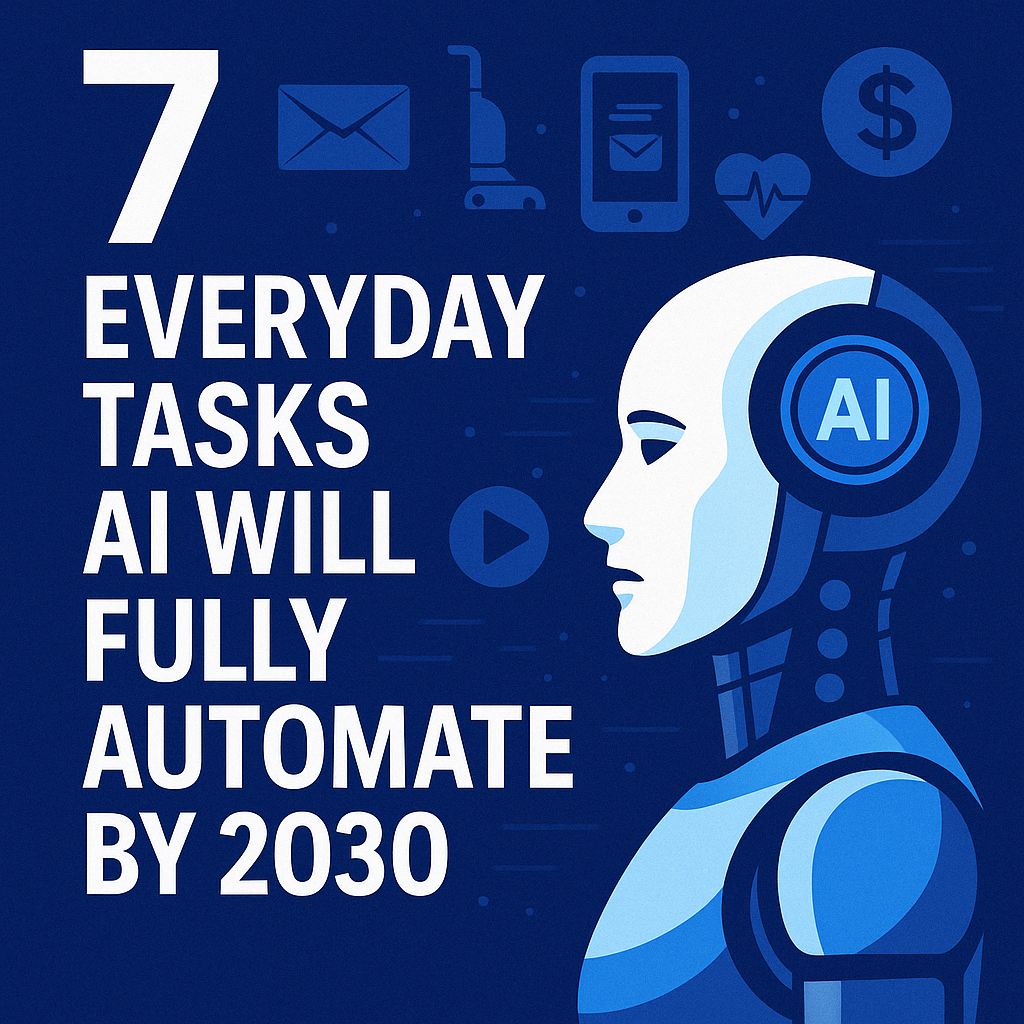AI automating everyday tasks is no longer a prediction—it’s already happening. As artificial intelligence becomes more capable and affordable, our daily routines are transforming. From how we shop to how we manage our homes, AI is ready to fully automate tasks we once considered essential.
By 2030, we won’t just see improvements—we’ll see full automation in areas of life we interact with every day. In this article, we explore 7 daily routines that AI is likely to eliminate, saving us time, effort, and even money.
1. Grocery Shopping
AI-powered apps and smart fridges are already learning your food preferences. By 2030, AI will handle your grocery lists, place orders automatically, and suggest healthier alternatives. Physical grocery shopping may become a thing of the past, especially in urban areas.
2. Home Cleaning
From robot vacuums to AI-controlled laundry bots, smart home systems are making cleaning effortless. These devices will learn your habits, clean specific zones on command, and even restock cleaning supplies when they’re low. With AI automating everyday tasks like cleaning, manual chores will feel ancient.
3. Email and Calendar Management
AI assistants like Google Assistant and Microsoft Copilot are already helping manage communications. Soon, they’ll fully handle scheduling, sending emails, replying to routine messages, and optimizing your calendar—all without you lifting a finger.
4. Personal Finance and Budgeting
AI-driven tools like Cleo and YNAB analyze spending patterns and offer smart budgeting tips. By 2030, they’ll automate bill payments, suggest investment strategies, and help you grow your savings. AI automating everyday tasks in finance could make personal money management effortless.
5. Content Creation
AI tools like ChatGPT, Jasper, and Synthesia are producing blogs, videos, and even songs. These platforms speed up production and offer creative suggestions. Humans will still add final touches, but most content generation groundwork will be AI-driven.
6. Health Monitoring
Smart wearables already track heart rate, sleep, and fitness. By 2030, they’ll monitor symptoms, offer medical advice, and schedule doctor appointments. With AI automating health-related tasks, early detection and prevention will be the norm.
7. Customer Service
AI-powered chatbots are replacing human reps across many industries. Soon, virtual assistants will handle complaints, returns, FAQs—even product recommendations—with emotional intelligence. This automation will be faster, smarter, and available 24/7.
AI’s Impact on Society
AI automating everyday tasks will also influence social behavior. With more time saved, people will shift focus to personal development, creativity, and wellness. AI assistants might plan your vacation, optimize your to-do list, and even offer emotional support based on mood tracking.
In workplaces, routine tasks like filing reports or generating summaries will be done instantly. That means more time for brainstorming, strategy, and creative collaboration—something AI still can’t replicate. The automation wave isn’t just about convenience—it’s about transforming how we live.
As AI continues to automate everyday tasks, it’s also changing how we make decisions. AI-powered recommendation engines will guide what we watch, what we buy, and even where we travel. These systems learn from your behavior to offer smarter suggestions. While convenient, this level of personalization could limit our exposure to new ideas. Striking the right balance between automation and human choice will be one of the biggest challenges of the next decade.
Conclusion
By 2030, AI will become so deeply embedded in daily life that we may forget how things worked without it. While it may raise concerns about jobs and privacy, the upside is a more productive, optimized, and balanced lifestyle. Embracing AI automating everyday tasks could be the best productivity decision we ever make.
Related Resources
Internal Link
Also read: 5 Shocking Ways AI Challenges Human Creativity in 2025


